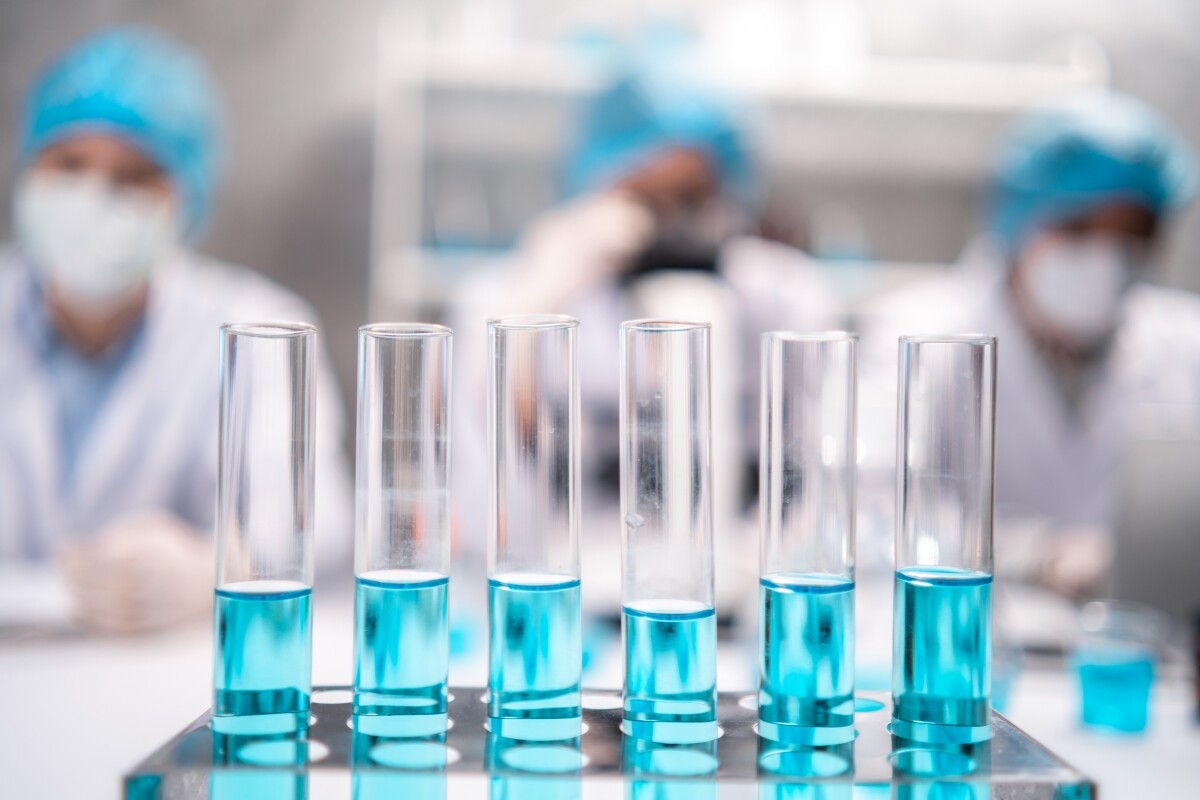The industries that require the use of cleanrooms are all related to research or the technical field of science.
Cleanrooms machinery
It is essential to use specific equipment to maintain sterilization and the appropriate conditions that guarantee the necessary level of hygiene in this type of installation. Some essential elements are:
-
Sandwich panels: made of phenolic resin or sheet metal to resist impact and heat.
-
Sliding doors: designed without edges and made in stainless steel for a better durability.
-
State-of-the-art technology for greater safety and efficiency, such as the one incorporated in our machines, washers and dryers..
-
Tempered glass with drying elements to prevent humidity.
-
Floors: non-porous for easy cleaning.
Cleanrooms in various industries
Cleanroom in pharmaceutical industry
These are spaces that maintain specific production processes and require various atmospheres absolutely free of particles to guarantee their quality.
To all that has been mentioned above, you have to add the filtration necessary to retain the particles and ensure the sterility of the air. In addition, the air conditioning ensures the conditions of humidity, pressure, temperature and comfort required for the well-being of operators and the success of activities carried out indoors.
Cleanroom in food industry
This type of room must be fully equipped for the production of edible products. They must meet a series of requirements to ensure food safety and product quality, indeed, they must ensure that the food contains no viruses or bacteria. They must be fully equipped and dedicated for safe food processing
Cleanroom in health sector
ISO 14644 (2014) establishes a series of measures that regulate the installation, maintenance and proper functioning of cleanrooms by standardizing the manufacturing process. This type of cleanroom in hospitals must have the following characteristics:
-
Facilities that generate air flows in one direction.
-
Greater variety in protection mechanisms.
-
product transfer systems with appropriate equipment and specific compartments
-
High electrical safety system, different mechanisms are generated to prevent high voltage discharges..
-
Surfaces adapted for optimal cleaning to eliminate any biological residues.
-
You can consult our catalog of specific machines for hospitals by clicking on this link.
Cleanrooms in chemical laboratories
This concept is closely linked to the sector, since a cleanroom is necessary to develop the processing of products, guaranteeing quality and avoiding cross-contamination. Other factors (humidity, temperature or differential pressure) are regulated with absolute precision.
The essential elements in this case are:
-
Inert materials for the design and to ensure an optimal air conditioning system, with easier maintenance and better cleaning.
-
Product protection ensured primarily to avoid contamination or alterations caused by environmental characteristics.
-
General plant protection.
Cleanrooms in cosmetics sector
In this sector, analysis and manufacturing processes of products are carried out. Hence the importance of hygiene and insulation in order to meet safety criteria.
Regarding the risks of contamination, there are three elements in this regard: microorganisms and particles, the environment and products.
Cleanrooms in biosecurity sector
Biological safety cabinets could be defined as an enclosed space, fully equipped with safe ventilation mechanisms for a better guarantee allowing the work and the handling of certain materials possibly contaminated and containing various pathogenic elements.
It is an elementary part of any laboratory and of various units specializing in biomedicine. However, these types of rooms can have different sizes, certain specifications and features, as well as different building systems.
Others cleanrooms
-
Veterinary industry: use of a sterile room for the manufacture of hormonal, antibiotic, oncological or cytostatic products.
-
R&D: regulated by the ISO 14644 standard, same operation to avoid human contamination or cleaning protocols.
-
Biotechnology: require environments that control the concentration of airborne particles, humidity, pressure or temperature.
In addition, there are other industries: microelectronics and photovoltaics, aerospace, automotive and optics where cleanrooms are required.
